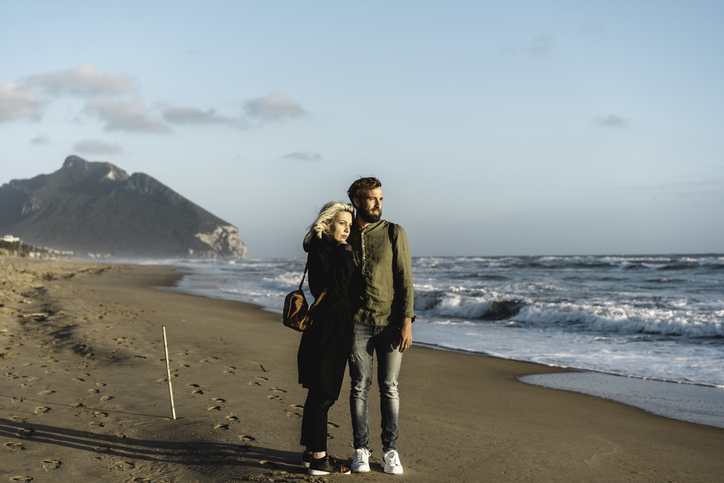When you think about illegal activities, your mind probably jumps to the obvious stuff like murder, theft, and drug trafficking. But did you know that there are a ton of seemingly innocent actions that can also land you on the wrong side of the law? From collecting rainwater to playing online poker, there are all sorts of surprising ways to run afoul of local, state, and federal regulations. Get ready to have your mind blown as we dive into 16 things you never knew were illegal in the land of the free.
1. Collecting Rainwater

In some states, particularly in the West, catching and storing rainwater from your own roof is actually against the law. The reasoning behind these regulations is that rainwater is part of the public water supply and therefore subject to strict usage and distribution controls. So if you live in Colorado, Utah, or Washington and you’ve been happily harvesting water from your gutters, you might want to think twice before setting up that rain barrel. While enforcement of these laws is relatively rare, it’s still a good idea to check your local regulations before you start stockpiling sky juice. And if you do get busted, just tell the authorities you were trying to save the environment—maybe they’ll let you off with a warning.
2. Giving Out Plastic Straws

In recent years, the humble plastic straw has become public enemy number one in the fight against ocean pollution. And some cities and states have taken their war on straws to the next level by outright banning them. In places like California, Oregon, and Washington D.C., it’s now illegal for restaurants and other businesses to give out single-use plastic straws unless specifically requested by the customer. Violators can face hefty fines and even jail time in some cases. So if you’re used to sipping your iced coffee through a disposable tube, you might want to start carrying a reusable one in your purse or pocket. Or just learn to drink like a grown-up and ditch the straw altogether.
3. Keeping a Permanent Marker in Your Pocket

If you’re the kind of person who always likes to have a Sharpie on hand for impromptu labeling or autograph signing, you might want to rethink your EDC (everyday carry). In some states, like Florida and New Hampshire, carrying a permanent marker in public can be considered prima facie evidence of intent to commit vandalism or graffiti. And in Oklahoma, it’s flat-out illegal to carry a permanent marker into any public facility, including schools, libraries, and government buildings. While these laws are clearly aimed at preventing property damage, they can also ensnare innocent marker enthusiasts who just want to be prepared for any writing emergency. So if you’re heading out with a Sharpie in your pocket, maybe keep an eye out for any suspicious-looking blank walls or “Wet Paint” signs.
4. Wearing Saggy Pants

If you’re a fan of the low-riding, baggy pants look that was popularized by hip-hop culture in the 90s and early 2000s, you might want to think about investing in a belt. That’s because in some parts of the country, wearing pants that sag below the waistline is actually against the law. These so-called “saggy pants laws” have been passed in several cities and states, often with the stated intent of preserving public decency and preventing the exposure of undergarments. Opponents of these laws argue that they unfairly target young men of color and criminalize a harmless fashion choice. But regardless of where you stand on the issue, if you want to avoid a wardrobe malfunction that could land you in legal trouble, it’s probably best to keep your pants pulled up and your belt buckled tight.
5. Collecting Certain Seashells

If you’re a beachcomber with a love for pretty seashells, you might want to think twice before you start filling up your pockets with your coastal treasures. In some states, like Florida and Hawaii, it’s illegal to remove certain types of shells from the beach. These laws are designed to protect delicate marine ecosystems and prevent the overharvesting of shells that provide homes for hermit crabs and other sea creatures. In Florida, for example, it’s illegal to collect the shells of the queen conch, while in Hawaii, it’s against the law to take any type of sand, coral, or rock from the beach. So if you want to avoid a scuffle with a park ranger, make sure you check your local shell-collecting laws before you start scouring the shore.
6. Driving Barefoot

If you’ve ever kicked off your shoes on a long road trip or slipped off your sandals to feel the gas pedal under your toes, you might be surprised to learn that driving barefoot is actually illegal in some states. While there’s no federal law against driving sans shoes, some states have their own regulations on the matter. In Alabama, for example, it’s illegal to drive a car while “seated in a manner that interferes with the proper operation of the vehicle,” which could potentially include driving barefoot. And in Missouri, you can be fined for “operating a vehicle in an unsafe manner,” which could be interpreted to include driving without proper footwear. So if you want to avoid a run-in with the law (and maybe some seriously stubbed toes), it’s probably best to keep your kicks on while you’re behind the wheel.
7. Living Off the Grid

If you’ve ever dreamed of unplugging from modern society and living a simpler, more self-sufficient lifestyle, you might want to think twice before you start stockpiling canned goods and solar panels. In some parts of the country, it’s actually illegal to live completely off the grid. These laws vary by state and municipality, but they generally require homes to be connected to public utilities like electricity, water, and sewer systems. The reasoning behind these regulations is often a combination of public health concerns and a desire to maintain property values and tax revenues. So if you’re planning on going full-on homesteader, make sure you’re not setting yourself up for a Walden-esque legal battle with the powers that be.
8. Playing Online Poker

If you’re a fan of Texas Hold’em or Omaha Hi-Lo, you might want to think twice before logging on to your favorite online poker site. That’s because, thanks to a 2006 federal law known as the Unlawful Internet Gambling Enforcement Act (UIGEA), it’s illegal for companies to knowingly accept payments in connection with internet gambling. While the law doesn’t specifically criminalize individual players, it does make it a lot harder to fund your online poker habit. Some states have even gone a step further and explicitly banned online gambling altogether. If you’re looking to get your poker fix, you might have to stick to old-fashioned home games or take a trip to Vegas. Just don’t try to bluff your way out of trouble with the feds.
9. Sharing Your Streaming Password

We’ve all done it—you sign up for a Netflix account and then share the password with your roommate, your boyfriend, your mom, and pretty much anyone else who asks. But did you know that this seemingly harmless act of generosity could actually be a crime? That’s right—according to the Computer Fraud and Abuse Act (CFAA), sharing your login credentials with someone else could be considered a form of hacking or unauthorized access. While Netflix has said that they’re not really interested in prosecuting individual password sharers (even though they’ve made it virtually impossible to do so), some experts argue that the practice could still be technically illegal. If you want to stay on the right side of the law (and keep your streaming privileges to yourself), maybe it’s time to cut off the freeloaders and change that password.
10. Wearing a Mask in Public

In the age of Covid-19, wearing a mask in public has become not just a social norm, but a legal requirement in many places. But did you know that in some states, wearing a mask for any other reason could actually be against the law? Anti-mask laws, many of which date back to the early 20th century, were originally enacted to prevent people from concealing their identities while committing crimes. Today, these laws are rarely enforced, but they’re still on the books in places like Alabama, Florida, and West Virginia. If you’re planning on donning a mask for a Halloween party or a political protest, you might want to check your local laws first. Or just move to a state where personal freedom includes the right to cover your face.
11. Releasing Balloons

If you’re planning a celebratory balloon release for your next graduation, wedding, or gender reveal party, you might want to think again. In several states, including California, Florida, and Tennessee, it’s illegal to intentionally release helium balloons into the atmosphere. The reason? When balloons end up in the ocean or other natural habitats, they can be mistaken for food by animals like sea turtles and birds, who then ingest them and die. Even balloons marketed as “biodegradable” can take years to break down and can still pose a threat to wildlife in the meantime. So if you want to add some uplifting flair to your next outdoor shindig, maybe stick to bubbles or eco-friendly confetti. Your local marine life will thank you.
12. Having a Garden

If you’re a green-thumbed city dweller with dreams of turning your front yard into a vegetable patch, you might want to check your local zoning laws first. In many urban and suburban areas, there are strict regulations on what types of plants can be grown in residential yards. Some cities have even banned edible gardens altogether, citing concerns about attracting pests, lowering property values, or just general unsightliness. While these laws are often controversial and have been challenged by food justice advocates, they remain on the books in places like Miami Shores, Florida, and Ferguson, Missouri.
13. Using Fake Names on the Internet

If you’ve ever signed up for a website or social media account using a silly username like “HotDog123” or “SparklePrincess99,” you might be surprised to learn that you could be breaking the law. In some states, like Arizona and New York, it’s illegal to use a false or fictitious name on the internet with the intent to deceive or defraud others. While these laws are primarily aimed at preventing identity theft and online harassment, they could potentially be used to prosecute anyone who uses a pseudonym or alias online. So if you want to maintain your anonymity on the web, you might want to stick to using your real name or initials. Or just move to a state where freedom of speech includes the right to call yourself whatever you want on Twitter.
14. Having Too Many Pets
If you’re an animal lover with a penchant for taking in every stray cat or dog that crosses your path, you might want to check your local pet limit laws before you turn your home into a real-life Paw Patrol. Many cities and counties have restrictions on the number of pets that can be kept in a single household, often with different limits for dogs, cats, and other types of animals. These laws are designed to prevent animal hoarding, reduce noise and odor complaints, and ensure that pets are properly cared for. So if you’re tempted to adopt just one more furry friend, make sure you’re not exceeding your legal quota. Otherwise, you might end up having to choose between your beloved pets and your freedom.
15. Using Someone Else’s Wi-Fi
You’re out and about and you need to check your email or look up directions, but you don’t have any data left on your phone. So you start scanning for open Wi-Fi networks and hop on the first one you find, no password required. But did you know that using someone else’s Wi-Fi without permission could actually be a crime? In some states, like Illinois and Maryland, accessing a computer network without authorization is considered a form of hacking and can be punished with fines or even jail time. And even if you’re not breaking any specific laws, using someone else’s Wi-Fi without their knowledge or consent is generally considered a messed up move.
16. Keeping Chickens
If you’re a fan of fresh eggs and the soothing sound of clucking in your backyard, you might want to check your local laws before you start building that chicken coop. In many cities and suburbs, keeping backyard chickens is either strictly regulated or outright banned. These laws often stem from concerns about noise, odor, and disease, as well as a desire to maintain a certain aesthetic standard in residential areas. Some municipalities have started to loosen their restrictions on urban chickens in recent years, but many still require permits, limit flock sizes, and prohibit roosters. So if you want to live the dream of farm-fresh omelettes every morning, make sure you’re not setting yourself up for a run-in with the local animal control.




